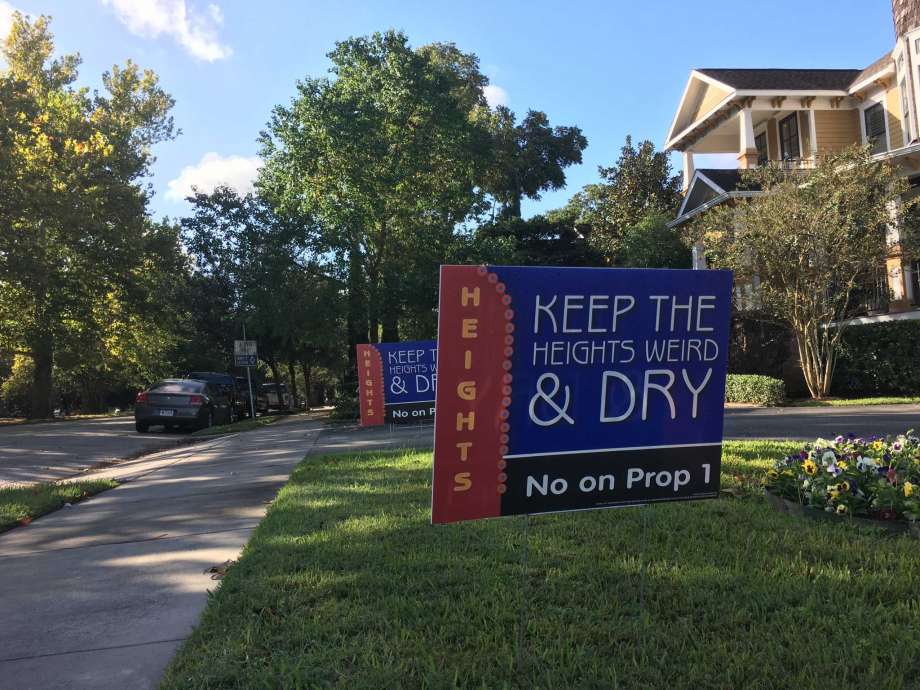The Real History of The Heights Dry Law — and Why Restaurants Want the H-E-B Treatment
A Pre-Prohibition Era Relic or a No Alcohol Community Saver?
BY Megan Forgey // 09.18.17Drinking in The Heights can still be a complicated affair with the dry law.
For longer than almost all Houstonians can remember, The Heights has had a mysterious, and some would say frustrating, dry law in place. While the rules may seem like a nod to the quaintness of the neighborhood, the law has a history spanning 105 years, back to when The Heights was still a separate city from Houston.
Restaurants and bars can get around the 105-year-old law that bans alcohol from restaurants by calling themselves a “social club.” By getting customers to sign up for their social club — a valid ID and signing some forms is required — they can serve those customers or “social club members” drinks.
The original prohibition era law came into formation back when The Heights was still a city of its own rather than the hotbed of young professionals, families and some of the city’s hottest new restaurants it is today. Mayor David Barker campaigned for the dry law in 1912 on the basis of ridding 19th Street of the saloons popping up, and locals supported the law on the hope that property values would be protected.
After The Heights was incorporated into Houston in 1918, the law stayed, with the Texas Supreme Court ruling in 1937 that The Heights was dry and would stay that way until the neighborhood voted otherwise. While the law has no clear boundaries set into writing, the dry area of The Heights rests inside Loop 610 to the north, Oxford Street to the east, I-10 to the south, and North Durham Drive to the west.
Just last November, residents of The Heights voted to repeal the part of the law that prohibited the sale of beer and wine by grocery stores after some good old-fashioned canvassing. H-E-B president Scott McClelland went door-to-door in The Heights to assure residents that repealing the law wouldn’t fill the quiet neighborhood with loud bars and clubs.
On the other side, the “Keep the Heights Dry” group used its website and Facebook to put out its message. The group argues that the dry law has a positive impact on the area — bringing in local business, a small-town feel, and a distinct, historical character. While the repeal easily passed with 63 percent of vote, it does not apply to restaurants in the historic neighborhood, and only allows the selling of wine and beer at grocery and convenience stores. It’s a win for the new Heights H-E-B, but not the burgeoning Heights restaurant scene.
“All of the business owners that I know hope the full law will be repealed”, Down House restaurant owner Chris Cusack tells PaperCity. “There is definitely still confusion amongst new customers that don’t understand having to sign up to go on a list to order a drink.”
The social club rules and regulations — the only way restaurants in The Heights can serve drinks — are anything but simple.
“Restaurants are required to keep boxes and boxes of membership slips, follow a different set of TABC rules, and we’re limited to who we can buy product from,” Cusack says. “At this point, it’s an unnecessary administrative hassle that increases costs for business owners.”















_md.jpeg)
